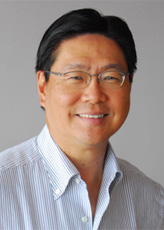Steve Jobs written by Walter Isaacson
| Speaker : | Professor Frederick S. H. Ma (馬時亨教授) |
| Moderator: | Dr Elaine K. M. Chan (陳劍梅博士) |
| Date : | 31 January 2012 (Tuesday) |
| Time : | 7:15 - 9:00 pm |
| Venue : | Special Collections, 1/F, Main Library, The University of Hong Kong |
| Language : | Cantonese |
About the Speaker
|
|
Professor Frederick Ma Si-Hang, GBS, JP, was born and educated in Hong Kong. He graduated with a Bachelor of Arts (Honours) degree from the University of Hong Kong in 1973 majoring in economics and history. Since graduation, he had taken up different major positions of various local and overseas banks, financial institutions and major companies, including Chase Manhattan Bank, Royal Bank of Canada Dominion Securities, JP Morgan, Kumagai Gumi (HK) Limited and Pacific Century Cyberworks Limited. He has rich experience in banking and financial sector. In 2002, he joined the Hong Kong Government as the Secretary for Financial Services and the Treasury and assumed the post of Secretary for Commerce and Economic Development in 2007. He resigned from the Government in July 2008 due to medical reasons. In October 2008, he was appointed as an Honorary Professor of the School of Economics and Finance at the University of Hong Kong. Professor Ma was appointed as a Member of the International Advisory Council of China Investment Corporation in July, 2009. Currently, he is the Chairman and Non Executive Director of China Strategic Holdings Limited. 馬時亨教授在1952年出生於香港,在香港接受教育,1973年畢業於香港大學,取得文學學士(榮譽)學位,主修經濟及歷史。畢業後馬教授, 曾在多間本地及海外金融機構出任重要職位。 馬時亨教授於2002年7月加入香港特區政府,任職財經事務及庫務局局長, 於2007年7月出任商務及經濟發展局局長。於2008年7月因健康理由請辭。 馬教授於2008年10月出任香港大學經濟金融學院名譽教授; 於2009年7月被委任為中國投資有限責任公司國際諮詢委員會成員。 現為香港中策集團主席及非執行董事。 |
About the Moderator
|
Elaine Chan taught undergraduate and post-graduate courses at Lingnan University, The Chinese University of Hong Kong, and Hong Kong Polytechnic University in the areas of film and cinema studies and Hong Kong popular culture respectively between 2005 and 2010. She also developed and co-taught General Education programmes at the University of Hong Kong between 2007 and 2011. She received her Ph.D. at the University of Kent, UK. Her areas of research include cinema studies, cultural theories, gender politics and popular culture. Her articles appeared in journals and newspapers such as Journal of Chinese Cinemas, Crossover, Film Bi-weekly, Ming Pao, and Hong Kong Economic Times. She was also director and producer of television commercials and documentaries.
陳劍梅博士於2007至2011年間為香港大學通識教育主任,2005至2007及2007至2011年間分別任教於香港嶺南大學、香港中文大學及香港理工大學。她於英國肯特大學獲取博士學位,其學術研究範疇包括電影、文化理論、性別研究及流行文化等,學術專論刊於Journal of Chinese Cinemas,文化及電影評論刊於越界、電影雙週刊、明報及香港經濟日報等。 她亦曾擔任電視廣告及紀錄片的導演及製片人。 |
About the Book
|
|
Based on more than forty interviews with Jobs conducted over two years—as well as interviews with more than a hundred family members, friends, adversaries, competitors, and colleagues—Walter Isaacson has written a riveting story of the roller-coaster life and searingly intense personality of a creative entrepreneur whose passion for perfection and ferocious drive revolutionized six industries: personal computers, animated movies, music, phones, tablet computing, and digital publishing.
At a time when America is seeking ways to sustain its innovative edge, and when societies around the world are trying to build digital-age economies, Jobs stands as the ultimate icon of inventiveness and applied imagination. He knew that the best way to create value in the twenty-first century was to connect creativity with technology. He built a company where leaps of the imagination were combined with remarkable feats of engineering.
Although Jobs cooperated with this book, he asked for no control over what was written nor even the right to read it before it was published. He put nothing off-limits. He encouraged the people he knew to speak honestly. And Jobs speaks candidly, sometimes brutally so, about the people he worked with and competed against. His friends, foes, and colleagues provide an unvarnished view of the passions, perfectionism, obsessions, artistry, devilry, and compulsion for control that shaped his approach to business and the innovative products that resulted. Driven by demons, Jobs could drive those around him to fury and despair. But his personality and products were interrelated, just as Apple’s hardware and software tended to be, as if part of an integrated system. His tale is instructive and cautionary, filled with lessons about innovation, character, leadership, and values. |



